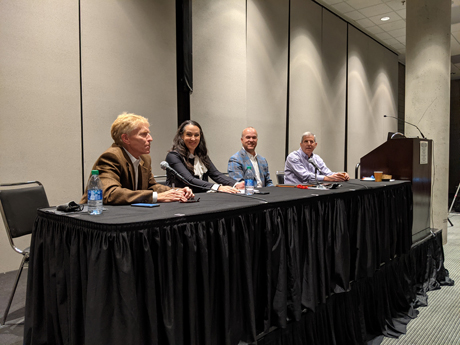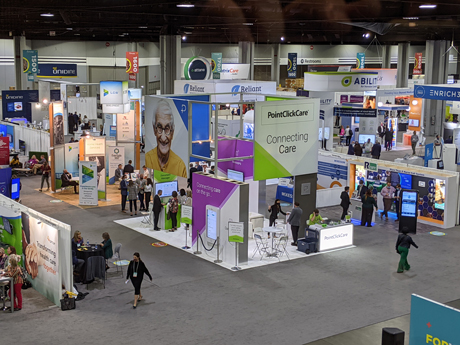ATLANTA — As a wide variety of companies look to capitalize on the baby boomer generation reaching retirement age, traditional seniors housing operators are facing an ever-growing set of competitors for the services offered.
Options such as active adult living and home care have always been a threat, but they’ve become more so. Active adult communities are now building with plans for seniors to age in place, according to Rob Love, president and CEO of marketing firm Love & Company. What’s more, services that used to make seniors housing a draw, such as meal preparation, transportation and home maintenance, are now available at the click of a button via smartphone apps.
“We’re facing pressure from competitive alternatives from all sorts of places,” said Love. “How can our communities continue to evolve to stay relevant and viable with all these competitive influences?”
Love’s comments came during a panel entitled “Overcome Your Post-Pandemic Marketing Challenges” at the LeadingAge Annual Meeting and Expo, held this week at the Georgia World Congress Center in Atlanta. Other panelists included Tye Campbell, principal, SFCS Architects; Emily Jimerson, senior associate, SFCS Architects; and Hoppy Sell, president, Tandem Senior Living Advisors.
Love suggested that sales teams shouldn’t simply sell seniors housing on the safety and security components anymore, but should focus on the ways a resident’s lifestyle can improve. However, regarding safety, Love said that seniors housing’s ability to maintain socialization and security at the same time during a pandemic should be a major selling point moving forward.
“We got through the first wave. This is one of the safest places you can be in almost any part in the country,” said Love. “And we’re not shutting down again. We’re sustaining socialization.”
Campbell said that COVID-19 has made it ever more important to focus on infrastructure to prevent disease spread, then market that advantage over competing options like staying at home. In particular, air filtration systems that cycle the air frequently, trap viruses and kill bacteria should be key to operators’ plans moving forward, he said.
“That is really where we can really get bang for the buck on healthy building. The air quality is really where you ought to invest.”
Jimerson added that reworking rooms to encourage cleanliness and social distancing can also be a selling point. At one community, SFCS rearranged a dining area to space out tables, put partitions between dining parties and add a hand-washing station near the entrance. The redesign gives residents more room to move around, more privacy with their fellow diners and a stronger feeling of safety, she said.
“Dining is often one of the most important components of our social spaces. The seniors look at that as the highlight of the day,” said Jimerson. “We don’t want to just feed everyone and keep them alive, we’re trying to build up and support relationships.”
Outdoor areas are another place where owners should be looking to expand and upgrade. In addition to being a safer place to interact during a pandemic, it also allows a community to effectively expand without adding any new buildings or acreage.
“We’re thinking about how to be smart and capitalize on that,” said Jimerson. “It’s still the safest way for us to gather in large groups. We want to take advantage of that.”
Sell listed several ways that operators should be most effectively selling their units to potential residents:
- Team selling, where residents, care staff, families and all stakeholders are included in marketing, especially on social media.
- Leveraging ambassadors, which are people who love the property, whether residents, family or staff. They can more effectively tell the story of surviving COVID from a personal story, rather than a sales message.
- Leverage the strong housing market. As home prices have skyrocketed across the nation, now might be a good time to increase pricing, he said, as potential residents may have more money in hand. “If the housing market has seen a spike of 17 percent, maybe your entrance fees go up 6 percent,” said Sell. “If that new resident has just seen a 20 percent increase in their house value, why should our providers not look at that as well?”
- Manage the community’s reputation on review sites like Facebook or Google. “Prospects check that first these days,” said Sell. “They want to see your star rating and what people are saying about you. You can’t remove a negative review on many of these platforms, but you can encourage others to post positive reviews and push those negatives down.”
Based in Washington, D.C., LeadingAge is a seniors housing industry association representing nonprofit operators. The annual meeting continues through today.
— Jeff Shaw


